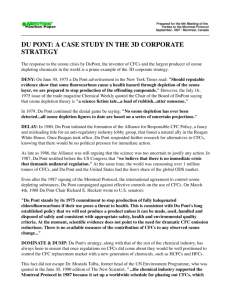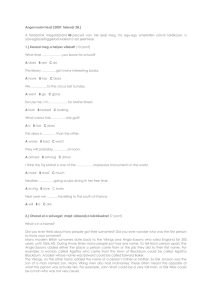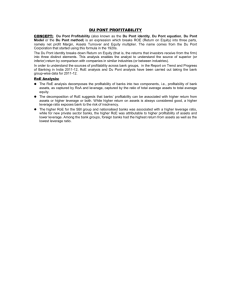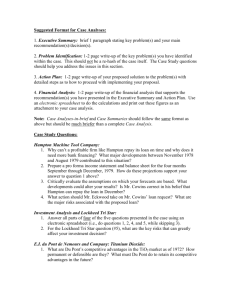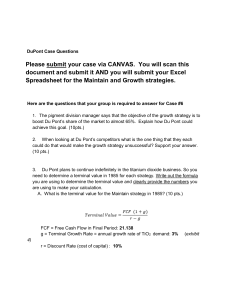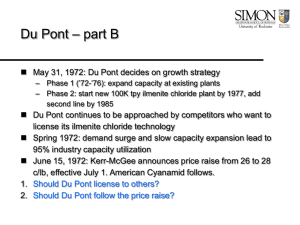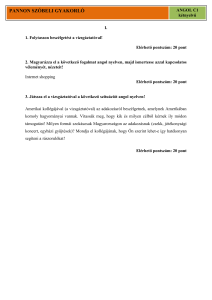Case Study: Du Pont and Chlorofluorocarbons The major issues
advertisement
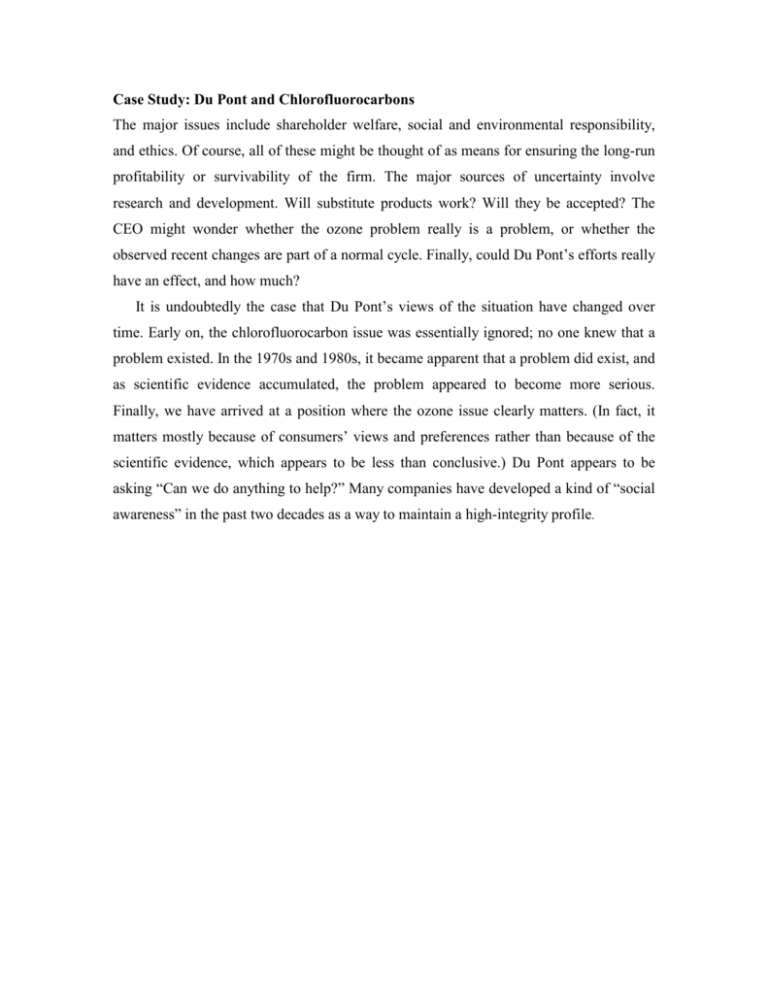
Case Study: Du Pont and Chlorofluorocarbons The major issues include shareholder welfare, social and environmental responsibility, and ethics. Of course, all of these might be thought of as means for ensuring the long-run profitability or survivability of the firm. The major sources of uncertainty involve research and development. Will substitute products work? Will they be accepted? The CEO might wonder whether the ozone problem really is a problem, or whether the observed recent changes are part of a normal cycle. Finally, could Du Pont’s efforts really have an effect, and how much? It is undoubtedly the case that Du Pont’s views of the situation have changed over time. Early on, the chlorofluorocarbon issue was essentially ignored; no one knew that a problem existed. In the 1970s and 1980s, it became apparent that a problem did exist, and as scientific evidence accumulated, the problem appeared to become more serious. Finally, we have arrived at a position where the ozone issue clearly matters. (In fact, it matters mostly because of consumers’ views and preferences rather than because of the scientific evidence, which appears to be less than conclusive.) Du Pont appears to be asking “Can we do anything to help?” Many companies have developed a kind of “social awareness” in the past two decades as a way to maintain a high-integrity profile.
